
Find Help
More Items From Ergsy search
-

Understanding Your Rights: Legal Support for Families During Economic Turbulence
Relevance: 100%
-
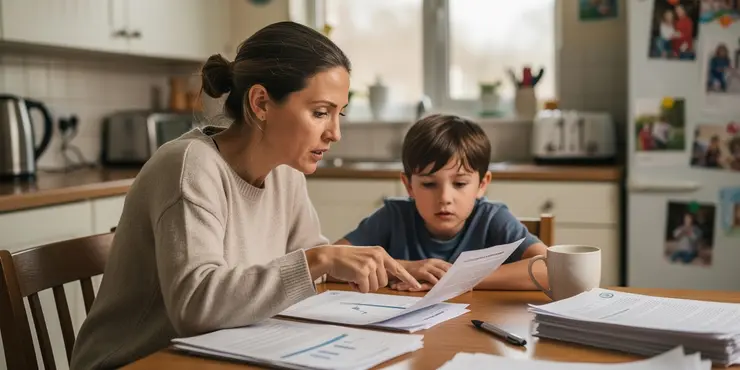
Emergency Legal Guidance: Navigating the Impact of Sudden Policy Changes on Families
Relevance: 36%
-
Have the rights of same-sex couples been affected by the 2026 family court changes?
Relevance: 35%
-

Support Services for Mental Health Amid Economic Uncertainty
Relevance: 35%
-
How are parental rights addressed differently in the 2026 family court updates?
Relevance: 34%
-
Are there modifications to legal aid access in family court for 2026?
Relevance: 33%
-

What constitutes economic abuse under the Domestic Abuse Act 2021?
Relevance: 32%
-
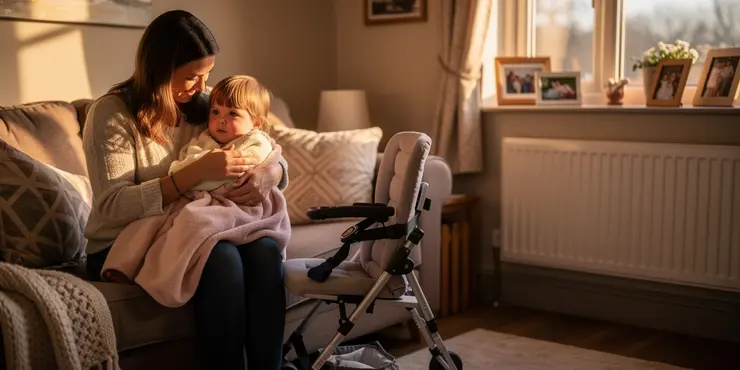
What support is available for families of individuals with PIMD?
Relevance: 31%
-
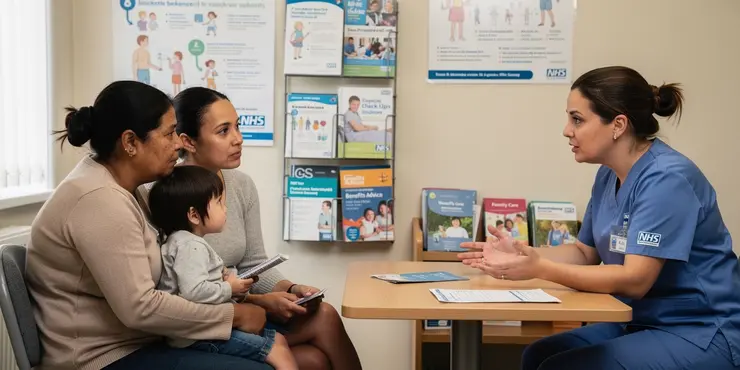
Government Announces New Support Scheme for Low-Income Families
Relevance: 30%
-

What legal rights do I have as a medical patient in the EU?
Relevance: 30%
-

Impacts of Recent Changes to Family Law Legislation
Relevance: 30%
-

Government Support Schemes for Families Affected by Inflation
Relevance: 29%
-
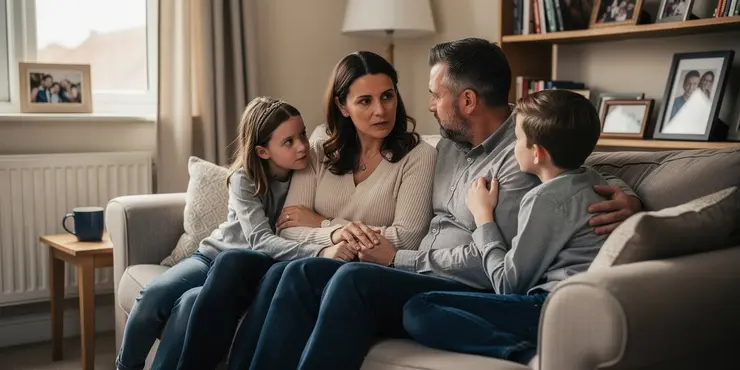
Mental Health Support Resources for Families
Relevance: 28%
-
Mental Health Support for Families: Resources and Guidance
Relevance: 28%
-
What is the impact of the 2026 changes on grandparent visitation rights?
Relevance: 27%
-

How can families support a member with autism?
Relevance: 27%
-

Financial Support for Families Amid Rising Cost of Living
Relevance: 27%
-
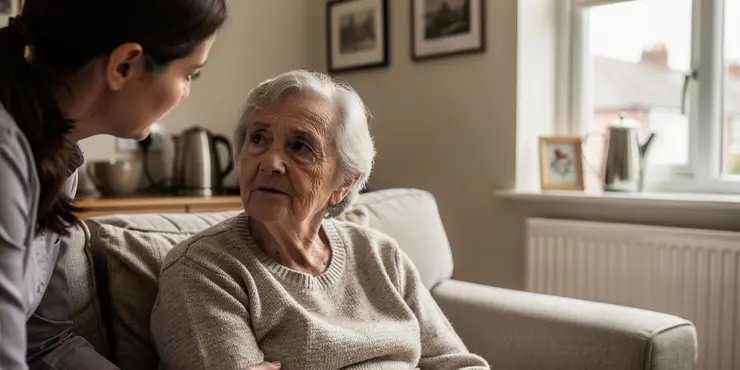
How can families support a loved one with Alzheimer's?
Relevance: 27%
-
What are the changes to Family Court Law in 2026?
Relevance: 27%
-
Have any changes been made regarding the enforcement of visitation rights?
Relevance: 27%
-

Mental Health Support for Families: Resources and Strategies
Relevance: 27%
-

Mental Health Support for Families: Resources and Helplines
Relevance: 27%
-
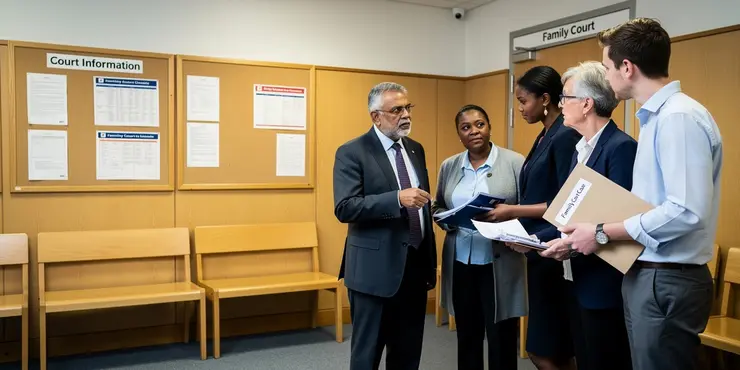
The Family Court without a Lawyer - Video 1 of 3
Relevance: 27%
-
What resources have been introduced for families involved in cross-border disputes in 2026?
Relevance: 26%
-

Can inmates access legal assistance?
Relevance: 26%
-
Are there any changes to spousal support regulations in 2026?
Relevance: 26%
-
What support is available for families dealing with type 1 diabetes?
Relevance: 26%
-

Can a wealth tax impact economic behavior?
Relevance: 26%
-

Mental Health Support for Families - Latest Resources and Guidance
Relevance: 25%
-
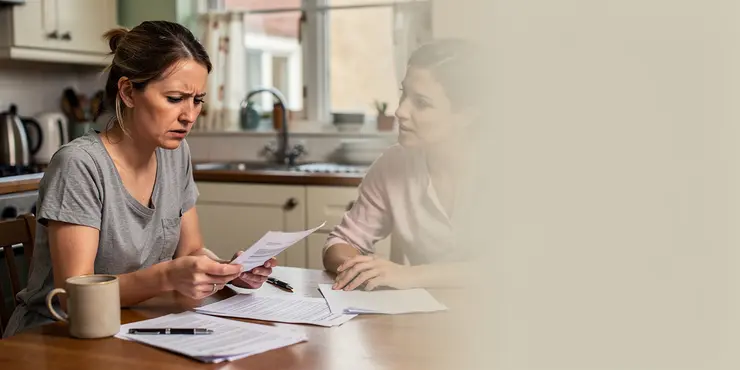
Is there any legal recourse for those affected by the housing benefit cuts?
Relevance: 25%
-

The Family Court without a Lawyer
Relevance: 25%
-
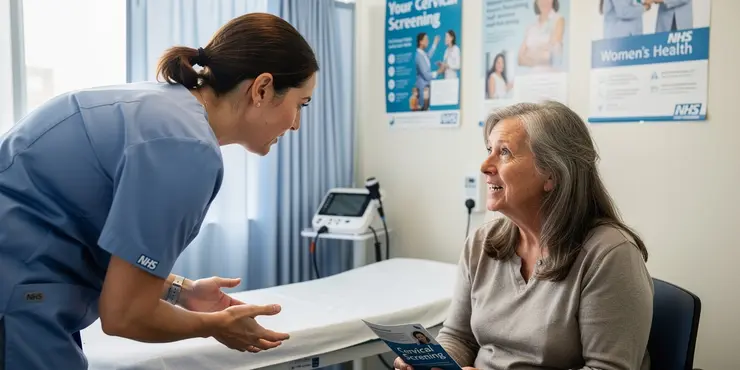
Accessing cervical screening with the right support for people with a learning disability
Relevance: 25%
-

Rise in Food Bank Usage Amid Economic Challenges
Relevance: 25%
-
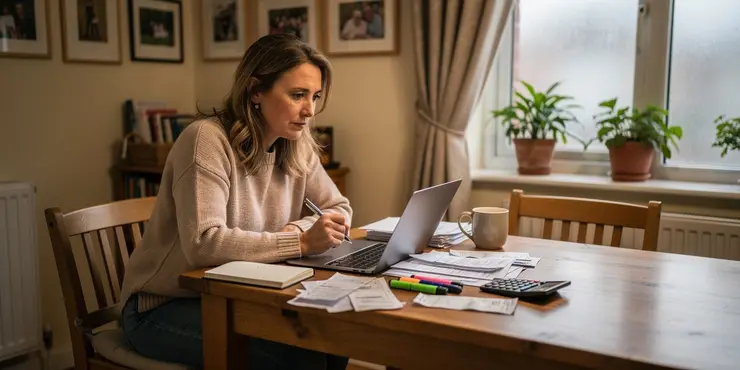
Navigating Post-Divorce Finances Amidst Economic Challenges
Relevance: 25%
-

Navigating Child Custody and Visitation Rights in Modern UK
Relevance: 25%
-

How can family members support someone with postnatal depression?
Relevance: 25%
-

Do gig workers have the right to a minimum wage?
Relevance: 25%
-

Navigating Legal Guardianship and Parental Responsibility in the UK
Relevance: 25%
-
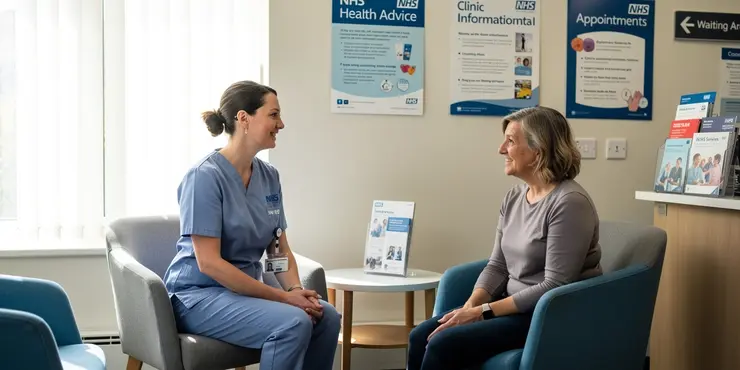
The Human Rights Act
Relevance: 25%
-
Are there any changes to surrogacy arrangements under the 2026 family court law?
Relevance: 25%
Understanding Your Rights: Legal Support for Families During Economic Turbulence
Introduction
Economic turbulence can significantly impact families, causing financial stress and uncertainty. During these times, it's essential for families in the United Kingdom to understand their legal rights and the support available to them. This knowledge can help mitigate the effects of financial instability and ensure that everyone's rights are protected.
Employment Rights
Job security and fair treatment at work are crucial during economic downturns. In the UK, employees are protected by laws that guarantee fair treatment, including comprehensive rights related to redundancy, unfair dismissal, and reductions in hours or pay. The Advisory, Conciliation and Arbitration Service (ACAS) provides valuable information and mediation services to help resolve workplace issues.
Benefits and Social Support
The UK government offers various benefits and support schemes to families facing financial difficulties. Universal Credit, for example, is designed to help with living costs for those on low incomes or out of work. Additionally, there are support systems in place for specific needs, such as Disability Living Allowance (DLA) and Personal Independence Payment (PIP). Understanding how to access and apply for these benefits is crucial for those in need.
Housing Rights
During economic turbulence, housing security can become a significant concern. In the UK, tenants have rights protecting them from unfair eviction and ensuring safe living conditions. The government's housing support services, along with organizations like Shelter, provide guidance and legal aid to those facing housing issues. Knowing your rights as a tenant can help prevent wrongful evictions and ensure a stable living environment.
Debt Management
Financial instability often leads to increased debt for families. Legal support for debt management includes access to free services provided by organizations such as Citizens Advice and StepChange Debt Charity. These organizations offer advice on managing debt, negotiating with creditors, and understanding bankruptcy and insolvency laws. Legal safeguards also exist to protect individuals from aggressive debt collection practices.
Family Law and Child Support
Economic hardships can strain family relationships, making family law and child support critically important. The UK legal system ensures that children's welfare is prioritized, providing mechanisms for child support and custody arrangements. Legal aid may be available for those unable to afford a solicitor, ensuring that all parties' rights are upheld during family disputes.
Conclusion
Understanding your legal rights and the support available is crucial for navigating economic turbulence. By being informed about employment rights, benefits, housing, debt management, and family law, families in the UK can better protect their interests and maintain stability during challenging times.
Understanding Your Rights: Legal Support for Families During Economic Turbulence
Introduction
When money problems happen, it can make life hard for families. This happens in tough times with the economy. In the United Kingdom, it's important for families to know what rights they have and what help they can get. Knowing this can make tough times easier and keep everyone's rights safe.
Employment Rights
Keeping your job and being treated fairly at work is very important when the economy is not doing well. In the UK, there are laws to protect workers. These laws help you if you lose your job unfairly or if your work hours or pay change. You can get help with work problems from an organization called ACAS. They give good advice and help solve problems at work.
Benefits and Social Support
The UK government can help families with money troubles. There are different types of benefits, like Universal Credit, to help pay for living costs when you have a low income or no job. Other help is for special needs, like Disability Living Allowance (DLA) and Personal Independence Payment (PIP). It's important to know how to ask for this help if you need it.
Housing Rights
Having a safe place to live is very important, especially in tough times. In the UK, people who rent have rights. These rights help protect them from being kicked out unfairly and keep their homes safe. The government and groups like Shelter can help with housing problems. Knowing your rights can stop unfair evictions and keep your home safe.
Debt Management
Money problems can make families have more debt. There is free help for managing debt from places like Citizens Advice and StepChange Debt Charity. They can give advice about handling debt and talking to people you owe money to. There are also laws to protect you from being treated badly by people collecting debts.
Family Law and Child Support
Money problems can cause stress in families. Family law and child support help keep children's needs first. The UK legal system helps with child support and custody. If you can't pay for a lawyer, you might get legal aid to help. This makes sure everyone's rights are taken care of in family problems.
Conclusion
Knowing your rights and the help you can get is very important in tough times. By learning about work rights, benefits, housing, debt management, and family law, families in the UK can stay safer and strong during hard times.
Frequently Asked Questions
What legal rights do I have if I am made redundant?
If you are made redundant, you have the right to receive statutory redundancy pay if you have been employed for two years or more. You are also entitled to a paid notice period and may have rights to consultation and suitable alternative employment.
Can my employer reduce my pay without my consent?
No, your employer cannot unilaterally reduce your pay without your consent. Any changes to your pay must be mutually agreed upon and should be formalized through an updated employment contract.
Am I entitled to any support if I am struggling to pay my mortgage?
Yes, there are several types of support available, such as government schemes like Support for Mortgage Interest (SMI). You should also speak with your lender, as they may offer options like mortgage holidays or tailored repayment plans.
What are my rights as a tenant if I cannot pay rent?
As a tenant, you have rights under the Housing Act 1988. If you cannot pay your rent due to financial hardship, communicate with your landlord as soon as possible. They may offer solutions such as deferred payments. During the COVID-19 pandemic, eviction processes were adjusted to give tenants additional support.
Can I claim benefits if I lose my job?
Yes, if you lose your job, you may be eligible for several types of benefits, such as Universal Credit, Jobseeker’s Allowance, and Council Tax Reduction, depending on your circumstances.
What legal aid is available for families facing economic difficulties?
Legal aid in the UK can help cover the costs of legal advice, mediation, and representation in court. Eligibility depends on your financial situation and the type of legal issue you are facing, such as housing disputes or employment issues.
Can I be evicted from my home during an economic crisis?
During economic crises, the government may introduce temporary measures to protect tenants from eviction. For example, during the COVID-19 pandemic, eviction notices and proceedings were suspended to prevent homelessness.
What is a Debt Relief Order (DRO) and how can it help me?
A Debt Relief Order (DRO) is a way to have your qualifying debts written off if you owe less than £30,000, have little disposable income, and few assets. It can provide significant relief from overwhelming debt.
How can I deal with creditors if I am unable to pay my debts?
If you cannot pay your debts, it's important to communicate with your creditors to discuss your situation. They may offer arrangements such as payment plans or temporarily freezing interest and charges. Seeking advice from debt advisory services can also be beneficial.
Are there any protections for utility bill payments during economic hardship?
Yes, utility providers may offer support schemes during economic hardship, including payment plans or grants to cover essential utilities. Speak with your provider to explore the options available to you.
Can I withdraw money from my pension if I am facing financial difficulties?
Yes, if you are over age 55, you can usually access your pension pots. However, withdrawing funds from your pension early can have significant long-term financial implications, and it's advised to seek financial advice before doing so.
What housing benefits can I claim if I am unemployed?
If you are unemployed, you may be eligible for Universal Credit or Housing Benefit, which can help cover your housing costs. The exact amount you can claim will depend on your circumstances, including income and household size.
Can I get help with child care costs if I lose my job?
Yes, you may be eligible for support with childcare costs through benefits like Universal Credit, which can cover up to 85% of childcare costs, or tax-free childcare schemes.
What should I do if I receive a county court judgment (CCJ) for debt?
If you receive a CCJ, you should act promptly. You can contact the creditor to agree on a repayment plan, or if the debt is not yours or the amount is incorrect, you can apply to have the judgment set aside.
What financial assistance is available for self-employed individuals during economic turbulence?
Self-employed individuals may be eligible for various forms of assistance, such as the Self-Employment Income Support Scheme (SEISS), Universal Credit, and tax deferrals. The availability and type of support can vary based on government policies.
What are my rights if I lose my job?
If you lose your job because your employer does not need you anymore, it is called being made redundant.
You have rights to help you if this happens:
- Money: You might get money called 'redundancy pay'.
- Notice: Your boss must tell you they are letting you go before it happens. This is called 'notice'.
- Time off: You can take time off to look for a new job.
- Reasons: Your boss must explain why they don't need you anymore.
If you need help, ask a friend or family member to explain it to you. You can also ask someone at a job support service.
Remember: Always ask if you are not sure about something!
If you lose your job because your position is no longer needed, you might get some money. This is called redundancy pay. You must have worked for the company for at least two years to get this money.
You should also get some time to get ready before you leave, which is called a notice period. Sometimes, the company might talk to you about other jobs you can do there.
If you are unsure and need help, ask someone you trust. They can help explain what your rights are.
Can my boss pay me less without asking me?
Your boss cannot lower your pay without asking you first. Both you and your boss need to agree on any changes to your pay. These changes should be written down in a new work contract.
Can I get help if I find it hard to pay my house loan?
Yes, there is help you can get. The government has plans like Support for Mortgage Interest (SMI). You should also talk to your bank. They might have ways to help, like a break from payments or special plans to pay back the loan.
What can I do if I cannot pay my rent?
If you cannot pay your rent, there are things you can do:
- Talk to your landlord: Tell your landlord if you have trouble paying rent. They might help you.
- Look for help: Find out if there are groups or people who can help you with money for rent.
- Know your rights: Learn what the rules are for where you live. You might have rights that can help.
- Keep records: Write down everything about rent, like letters or calls with your landlord.
Reading tools can help you understand more.
You can also ask someone you trust to help explain.
If you rent a home, you have special rights to help you. These rights are under a law called the Housing Act 1988. If you can't pay your rent because you don't have enough money, tell your landlord right away. They might help by letting you pay later. During the COVID-19 pandemic, rules changed to help people who rent so they had more support.
Can I get help if I lose my job?
If you lose your job, you might get help from the government. This help is called "benefits."
- What to do: You can check online or ask someone if you can get benefits.
- How to apply: You might need to fill in a form. You can ask for help if the form is hard.
- People who can help: You can ask a friend, family member, or a helper at a job center.
These tools can help:
- Read out loud: Ask someone to read the information to you.
- Use pictures: Look for pictures that explain benefits.
- Ask questions: If you don’t understand, it’s okay to ask questions.
If you lose your job, you might get help with money. You could get Universal Credit, Jobseeker's Allowance, or Council Tax Reduction. It depends on your situation.
What help can families with money problems get from the law?
If your family does not have enough money, you can get help from the law.
This help is called 'legal aid'. It can make things easier for you.
Here are some things that can help you understand legal aid:
- You can ask a person who knows the law, like a lawyer, for help.
- There are places you can go to talk to someone about your problems.
- You can find information online or in a book.
Using pictures or videos can also help you understand better.
Legal aid in the UK can help pay for legal advice, help with problem-solving, and having a lawyer in court. You can get legal aid based on how much money you have and the kind of problem you are dealing with. Problems could be about where you live or your job.
Can I lose my home during a money problem time?
When money problems happen, the government can make special rules to help people who rent homes. These rules stop renters from losing their homes. For example, during the COVID-19 pandemic, the government stopped landlords from making people leave their homes. This helped people keep a place to live.
What is a Debt Relief Order (DRO) and how can it help me?
A Debt Relief Order, or DRO, is a way to help if you have lots of money problems. It stops people you owe money to from asking you to pay for a while.
A DRO might help you if:
- You do not have much money to pay your debts.
- You do not own valuable things, like a house.
- You do not have much money coming in.
Some things that can help you understand DROs are:
- Ask someone to explain big words.
- Use pictures to help understand.
- Use a computer tool that reads the text out loud.
A Debt Relief Order (DRO) is a way to make some debts go away if you owe less than £30,000. You must have little extra money and not many things of value. It helps people who owe a lot and need a break.
What can I do if I cannot pay the people I owe money?
If you cannot pay your debt, here are some easy steps to help:
1. Talk to them: Call or write to the people you owe money to. Tell them you are having trouble paying.
2. Make a plan: See if you can pay a smaller amount each month. This is called a payment plan.
3. Get help: Ask someone you trust or a money expert to help you. They can talk to the creditors for you.
4. Use tools: Use a notebook or an app to help you keep track of what you owe and what you can pay.
Remember, it is okay to ask for help!
If you can't pay your bills, tell the people you owe money to. They might help you. They could let you pay in smaller amounts or stop adding extra fees for a while. Talk to someone who gives advice about money problems. They can help you too.
Is there help for paying utility bills when money is tight?
If you are having a hard time with money, you might have trouble paying for things like water, gas, or electricity. There are ways to get help!
Here are some tips:
- Check if there are programs that can help pay your bills.
- Call your utility company and ask for payment plans or more time.
- Look for charities or local groups that help with bills.
You can ask a friend or family member to help you make calls or fill out forms.
Yes, utility companies like gas, water, or electricity might help you if you are having money problems. They can help you make payment plans or give you money to pay for important things like heat and water. Talk to your utility company to see how they can help you.
Can I take money from my pension if I have money problems?
Yes, if you are older than 55, you can use your pension money.
But taking money early can change your money for the future. It is a good idea to get help from a money expert before doing this.
Can I get help with housing if I do not have a job?
If you do not have a job, you may get money to help you pay for your home. This is called a housing benefit.
Here is what you can do:
- You can talk to someone who helps with housing benefits. They can tell you what to do.
- Use a computer or tablet to find websites that explain housing benefits.
- You can ask a friend or family member to help you understand what to do.
If you do not have a job, you might get some money from Universal Credit or Housing Benefit. This money can help pay for your home. How much money you get depends on how much you earn and how many people live with you.
Can I get help with child care costs if I lose my job?
If you lose your job, you might worry about paying for child care. Here are some simple steps you can take:
- Check for help: Ask if there is any support to help pay for child care.
- Contact a support group: Sometimes there are groups that can give advice and help.
- Look online: There are websites with information about support when you lose a job.
Remember, it's okay to ask for help if you need it!
You might get help to pay for childcare. There are things like Universal Credit that can pay up to 85% of the costs. There are also tax-free childcare plans that can help you.
What to Do If You Get a Court Paper About Owing Money
If you get a CCJ, act fast. You can talk to the person you owe money to and make a plan to pay them back. If the debt is not yours or the amount is wrong, you can ask to have the judgment removed.
What Money Help Can Self-Employed People Get When Times Are Tough?
If you work for yourself and things are hard, you can get money help. This help is there when the economy is not doing well, and you don't make as much money as before.
You can ask someone at a support center for help. They can let you know about the money you can get. You can also use a computer to check for online tools that will guide you.
If you work for yourself, there are different ways you can get help. Some help is money, called the Self-Employment Income Support Scheme (SEISS). You might also get money through Universal Credit. If you owe tax, you might be able to pay it later.
The kind of help you can get might change because of government rules.
Here are some things you can do to make it easier:
- Ask someone to help you read information.
- Use pictures or videos to understand better.
- Take your time and go through things slowly.
- Use tools like simple text readers that can read aloud to you.
Useful Links
This website offers general information and is not a substitute for professional advice.
Always seek guidance from qualified professionals.
If you have any medical concerns or need urgent help, contact a healthcare professional or emergency services immediately.
Some of this content was generated with AI assistance. We’ve done our best to keep it accurate, helpful, and human-friendly.
- Ergsy carfully checks the information in the videos we provide here.
- Videos shown by Youtube after a video has completed, have NOT been reviewed by ERGSY.
- To view, click the arrow in centre of video.
- Most of the videos you find here will have subtitles and/or closed captions available.
- You may need to turn these on, and choose your preferred language.
- Go to the video you'd like to watch.
- If closed captions (CC) are available, settings will be visible on the bottom right of the video player.
- To turn on Captions, click settings .
- To turn off Captions, click settings again.
More Items From Ergsy search
-

Understanding Your Rights: Legal Support for Families During Economic Turbulence
Relevance: 100%
-

Emergency Legal Guidance: Navigating the Impact of Sudden Policy Changes on Families
Relevance: 36%
-
Have the rights of same-sex couples been affected by the 2026 family court changes?
Relevance: 35%
-

Support Services for Mental Health Amid Economic Uncertainty
Relevance: 35%
-
How are parental rights addressed differently in the 2026 family court updates?
Relevance: 34%
-
Are there modifications to legal aid access in family court for 2026?
Relevance: 33%
-

What constitutes economic abuse under the Domestic Abuse Act 2021?
Relevance: 32%
-

What support is available for families of individuals with PIMD?
Relevance: 31%
-

Government Announces New Support Scheme for Low-Income Families
Relevance: 30%
-

What legal rights do I have as a medical patient in the EU?
Relevance: 30%
-

Impacts of Recent Changes to Family Law Legislation
Relevance: 30%
-

Government Support Schemes for Families Affected by Inflation
Relevance: 29%
-

Mental Health Support Resources for Families
Relevance: 28%
-
Mental Health Support for Families: Resources and Guidance
Relevance: 28%
-
What is the impact of the 2026 changes on grandparent visitation rights?
Relevance: 27%
-

How can families support a member with autism?
Relevance: 27%
-

Financial Support for Families Amid Rising Cost of Living
Relevance: 27%
-

How can families support a loved one with Alzheimer's?
Relevance: 27%
-
What are the changes to Family Court Law in 2026?
Relevance: 27%
-
Have any changes been made regarding the enforcement of visitation rights?
Relevance: 27%
-

Mental Health Support for Families: Resources and Strategies
Relevance: 27%
-

Mental Health Support for Families: Resources and Helplines
Relevance: 27%
-

The Family Court without a Lawyer - Video 1 of 3
Relevance: 27%
-
What resources have been introduced for families involved in cross-border disputes in 2026?
Relevance: 26%
-

Can inmates access legal assistance?
Relevance: 26%
-
Are there any changes to spousal support regulations in 2026?
Relevance: 26%
-
What support is available for families dealing with type 1 diabetes?
Relevance: 26%
-

Can a wealth tax impact economic behavior?
Relevance: 26%
-

Mental Health Support for Families - Latest Resources and Guidance
Relevance: 25%
-

Is there any legal recourse for those affected by the housing benefit cuts?
Relevance: 25%
-

The Family Court without a Lawyer
Relevance: 25%
-

Accessing cervical screening with the right support for people with a learning disability
Relevance: 25%
-

Rise in Food Bank Usage Amid Economic Challenges
Relevance: 25%
-

Navigating Post-Divorce Finances Amidst Economic Challenges
Relevance: 25%
-

Navigating Child Custody and Visitation Rights in Modern UK
Relevance: 25%
-

How can family members support someone with postnatal depression?
Relevance: 25%
-

Do gig workers have the right to a minimum wage?
Relevance: 25%
-

Navigating Legal Guardianship and Parental Responsibility in the UK
Relevance: 25%
-

The Human Rights Act
Relevance: 25%
-
Are there any changes to surrogacy arrangements under the 2026 family court law?
Relevance: 25%


